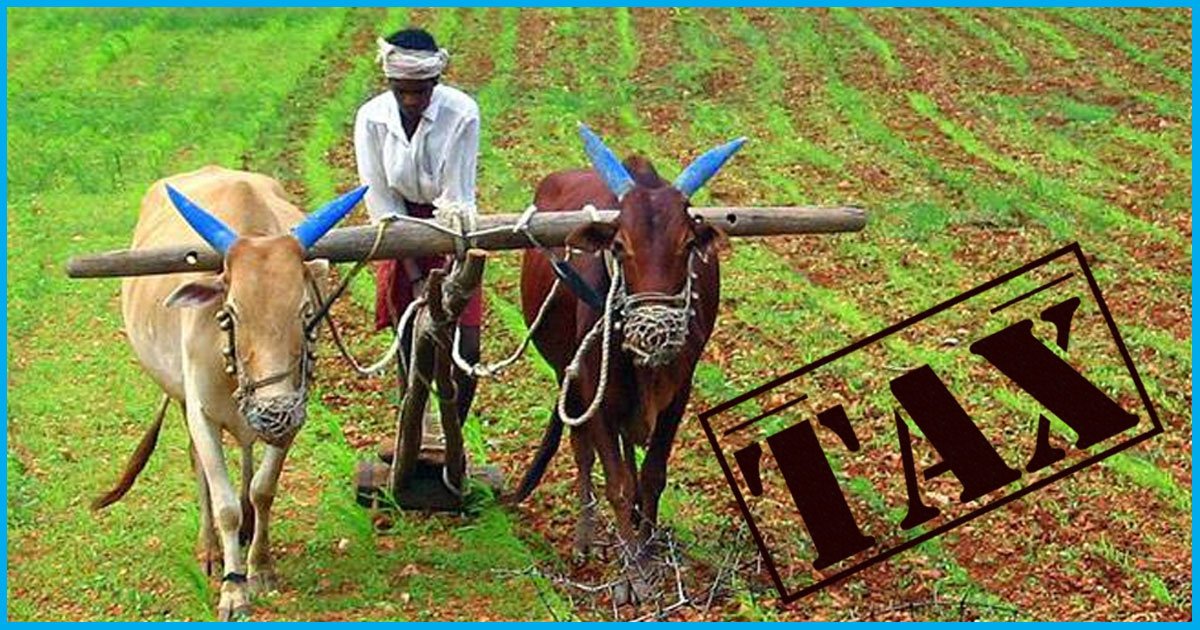
Why Don’t Farmers Pay Taxes And Other Questions?
8 Dec 2017 7:42 AM GMT
1. Farmers don’t pay taxes
According to latest NSSO report, average annual income of agricultural household is Rs 77,112 per yr. As per current income tax laws, anyone earning less than Rs 2.50 lakhs is exempted from tax. So even if farmers income is taxable, farmer can’t pay
Surely the farmers would love to pay the income tax, which means, they would earn more than 2.5 lakhs, this according to the current government’s grand vision, will happen in 2022 and at the current rate, even when their income doubles, they would still be exempted.
Read more: https://sureshe.wordpress.com/2017/10/07/study-on-farmer-suicides-part-ii/
2. Farmers don’t pay for electricity
When they start earning a decent income, they can certainly pay for electricity. That shouldn’t be a problem at all. After all, they are already paying for
- Hired labor (human, animal and machinery)
- Maintenance expenses on owned animals and machinery
- Input expenses such as seed, fertilizer, manure, pesticides, irrigation
- Interest on owned fixed capital
- Transportation & marketing cost
- Crop insurance
- and more …
Read more on how despite all their hard work, their produce is wasted in the government godowns: https://sureshe.wordpress.com/2017/09/22/60000-tonnes-of-grains-wasted-in-fci-storage-in-6-years/
3. Farmers get loan waivers
- 52,000 crores was released by GoI as part of the Agricultural Debt Waiver and Debt Relief Scheme (ADWDRS), launched in May 2008, in order to address the financial indebtedness of the farmers, right before the 2009 elections
- CAG report highlighted the following shortcomings
- The farmers entitled to receive the benefits where not included in the list of beneficiaries by the lending institutions
- Farmers who had taken loans for non-agricultural purposes were given benefits under the scheme
- Lending institutions responsible for charges such as legal, inspection, miscellaneous claimed from the government
- Loans amounting to hundreds of crores not be waived under this scheme were also waived off
Read more – https://t.co/ZsNQ8NBSRA
4. Farmers get subsidies
- Total fertiliser subsidy in 2014-15 is Rs. 67,970 crore
- Subsidy for imported urea Rs 12,300 crore
- Domestic urea is Rs 31,000 crore
- Sale of de-controlled fertilizers (like phosphatic & potassic fertilizers) is Rs 24,670 crore
So it’s the
- Fertilizer companies get subsidies not the farmers
- Seed companies get subsidies not the farmers
- Chemical companies get subsidies not the farmers
Moreover the fertilizer subsidies don’t even reach the farmer. As per the economic survey 2015-16, only 35% of the urea subsidy percolates down to the beneficiaries, small and marginal farmers due
- 24% spent on inefficient urea producers
- of the remaining, 41% is diverted to non-agricultural uses and abroad
- of the remaining, 24% is consumed by larger farmers
(Limited) Support for organic compost and manure:-
The Government is promoting the establishment of fruit/vegetable market/agro waste compost production unit 100 Tonne per Day(TPD)/3000 Ton per Annum(TPA) capacity under Capital Investment Subsidy Scheme (CISS) through National Bank for Agriculture and Rural Development (NABARD). State wise no of units and subsidy under CISS for fruit/vegetable compost unit (According to NABARD communication)
5. Farmers use too many pesticides
Green Revolution, among other things, promoted the use of chemical based farming aggressively. In fact, Swaminathan, the father of green revolution had predicted in mid 60’s that the soil fertility would take a beating due to the increased use of chemicals.
Just a month ago, Maharashtra witnessed more than 50 farmers deaths due to pesticide spraying. In fact, spraying pesticides is so dangerous, it actually fetches Rs250 per day, highly paid agricultural job.
6. Farmers burn the stubble
If the farmers do not burn the stubble, seeds of the next crop do not get mixed in the soil, following which the farmers will suffer losses. Instead of raising this issue only when smog is at dangerous levels, the govt. along with farmers must evaluate the proper solutions and not play the blame game.
While questioning is a must, it must not be limited to select few and certainly must not spare the politicians. We must stop putting them on pedestals, stop garlanding them, stop holding them in high regards and bring them to answer
- Why are political parties not under RTI?
- Why are donations to parties not transparent?
- Why are parties not held accountable to their manifestos?
- Why are criminals allowed in politics?
You can read the full report here Suresh Ediga’s Blog.
 All section
All section














